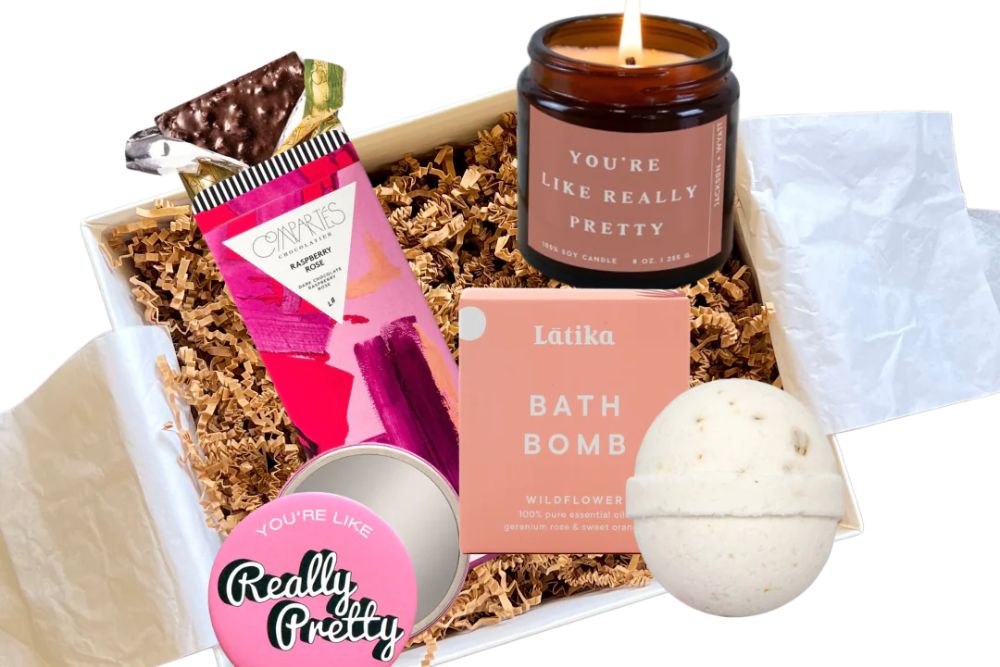Your Cart is Empty

March 22, 2024 3 min read
In a world saturated with compliments of every caliber, "You're like really pretty" stands out as a beacon of genuine, albeit complex, praise. This line, immortalized by the 2004 cult classic film "Mean Girls," has woven itself into the fabric of everyday language, evolving beyond its cinematic origin to become a multifaceted cultural phenomenon.
"Mean Girls" is more than just a film; it's a cultural landmark that gave birth to a new lexicon of phrases. Among these, "You're like really pretty" is perhaps the most resonant. Delivered by Regina George, the archetype of high school popularity, to the unsuspecting Cady Heron, the phrase serves as a double-edged sword – a compliment shrouded in layers of social nuance. This complexity and the scene's iconic status catapulted the phrase beyond the confines of teenage drama, turning it into a universal shorthand for nuanced appreciation.
The journey from a scripted line to a staple in real-life interactions is a testament to the phrase's adaptability and universal appeal. It mirrors the desire for acceptance and the complex dance of teenage social dynamics, resonating with audiences worldwide. As "Mean Girls" ascended from film to cultural phenomenon, its language infiltrated everyday conversations, transcending age and cultural boundaries.
What makes "You're like really pretty" so compelling is its ambiguity. Is it a genuine compliment or a veiled challenge? The context dictates the interpretation. This ambiguity reflects the social gymnastics of human interaction, where sincerity mingles with competition. It’s a microcosm of the broader human experience, encapsulating the dichotomies of adolescence and beyond: the need for acceptance versus the desire to stand out.
In the landscape of personalization, "You're like really pretty" has found a new domain: customized gift boxes. These items transform the phrase from spoken word to tangible token, encapsulating personal sentiment in a unique, memorable format. They represent the evolution of compliment-giving, from fleeting words to enduring gestures, enhancing the personal connection through customization. Whether adorned on a box containing beauty products, chocolates, or unique keepsakes, the phrase elevates the gifting experience, making it deeply personal and reflective of the individual’s identity.
Globally, the phrase has been embraced and adapted, proving that the appeal of a nuanced compliment knows no borders. Each variation retains the original's spirit while imbuing it with local flavor, showcasing the universal human yearning for recognition and belonging. This global tapestry of interpretations enriches the phrase, transforming it from a simple compliment to a cultural connector.
The endurance of "You're like really pretty" is a fascinating study in the evolution of language. It highlights how phrases morph in meaning and significance, impacted by time, media, and societal changes. Its persistence in our cultural lexicon speaks to the enduring nature of well-crafted, relatable dialogue and the human stories behind them. As language continues to evolve, so too will the life of this phrase, adapting to new contexts and generations.
From a memorable movie line to an enduring societal staple, "You're like really pretty" has traversed an incredible journey. Its survival and proliferation underscore the power of media in shaping language and the complexities of human interaction. As it continues to evolve, one thing remains clear: a well-placed compliment, nuanced and sincere, holds timeless appeal.
How did "You're like really pretty" transition from movie dialogue to everyday language?
What does the popularity of customized gift boxes say about current social trends?
Why does the ambiguity of "You're like really pretty" contribute to its charm?
How does "You're like really pretty" reflect broader social dynamics?
What future adaptations might "You're like really pretty" undergo as language evolves?